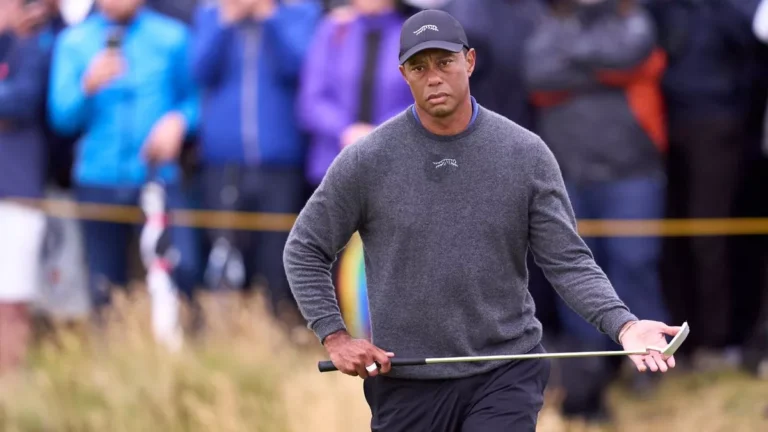Tiger Woods is good but bad in one aspect of life – former super agent
Hughes Norton, Tiger Woods’ former agent, recently spoke out about his time representing the golfing legend in his newly released memoir, “Rainmaker.” Norton, who represented Woods for two years starting in 1996, revealed that despite not speaking to Woods since being let go, he had some critical observations about Woods’ social skills. Their professional relationship…
Hughes Norton, Tiger Woods’ former agent, recently spoke out about his time representing the golfing legend in his newly released memoir, “Rainmaker.” Norton, who represented Woods for two years starting in 1996, revealed that despite not speaking to Woods since being let go, he had some critical observations about Woods’ social skills.
Their professional relationship began as Woods turned pro at the age of 20. Norton had first encountered Woods and his father Earl seven years earlier when he employed Earl as a junior talent scout at IMG. While Norton successfully secured record-setting sponsorship deals for Woods at the start of their partnership, their collaboration was short-lived, as Woods sacked Norton shortly after, leading to IMG terminating their ties with Norton as well.
Woods remained with the sports agency and transitioned to being represented by Mark Steinberg, who continues to serve as his agent. Norton, however, was bound by secrecy for a decade as part of a substantial settlement and was unable to compete against IMG.
Reflecting on his split with Woods, Norton expressed frustration at the lack of explanation for the termination of their relationship. He described Woods’ tendency to abruptly sever relationships with people in his life, including caddies, girlfriends, and managers, without providing any indication of discontent beforehand. Norton admitted feeling betrayed by Woods’ sudden departure, particularly considering their short time together.
Norton didn’t mince words when discussing Woods’ character, describing him as “unbelievably self-centered” and focused solely on becoming the greatest golfer in history from a young age. He criticized Woods for being selfish and lacking empathy, noting his inability to interact effectively with others. Norton recounted the emotionless manner in which Woods delivered the news of their split, describing him as standing “zombie-like.”
Despite the disappointment and sense of betrayal, Norton has moved on from his career as a sports agent and has chosen not to return to that line of work. However, he has chosen to share his experiences and insights in his memoir, providing a candid look at his time representing one of golf’s most iconic figures.






